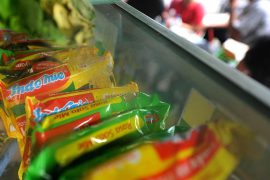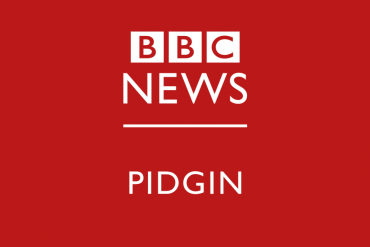
Di pandemic don make di world wealthiest pipo get more money and e don make more pipo dey live in poverty, according to di charity Oxfam.
Lower incomes for di world poorest pipo don contribute to di death of 21,000 pipo every day, na so di report claim.
- See full list of wetin Nigerians search pass for google dis year
- Feem crew wey go shoot movie for space don come back to Earth
But di world 10 richest men don get more dan double of dia collective fortunes since March 2020, Oxfam tok.
Oxfam bin release one report on global inequality for di beginning of di World Economic Forum meeting for Davos. Di event dey usually see thousands of corporate and political leaders, celebrities, campaigners, economists and journalists gada for di Swiss ski resort for panel discussions, drinks parties plus schmoozing.
Dis week discussions go include di likely future path of di pandemic, vaccine equity and di energy transition.
Danny Sriskandarajah, Oxfam GB chief executive, say di charity time di report each year to coincide wit Davos to attract di attention of economic, business and political elites.
“Dis year, wetin dey happun dey off di scale,” im tok.
“E get new billionaire wey dey comot almost every day during dis pandemic, meanwhile 99% of di world population dey worse off because of lockdowns, lower international trade, less international tourism, and as a result of that, 160 million more pipo don enta into poverty.”
“Something dey wrong wit our economic system,” im add am.
According to Forbes figures wey di charity use as example, di world 10 richest men na: Elon Musk, Jeff Bezos, Bernard Arnault and family, Bill Gates, Larry Ellison, Larry Page, Sergey Brin, Mark Zuckerberg, Steve Ballmer and Warren Buffet.
As dia wealth grow togeda from $700bn to $1.5tn, e get some ogbonge difference between dem, Oga Musk fortune grow by more tdan 1,000%, while Mr Gates’ rise by more modest 30%.
How Oxfam dey work out di figures?
Oxfam report dey based on data from di Forbes Billionaires list and di annual Credit Suisse Global Wealth report, wey give di distribution of global wealth going back to 2000.
Di Forbes survey dey use di value of one individual assets, mainly property and land, minus debts, to determine wetin e or she “get”. Di data no include wages or income.
Many pipo don criticise di method in di past as e mean say student wit high debts, but wit high future earning potential, for example, dem go look am as poor under di new criteria wey dem dey use.
Oxfam also tok say sake of di facts say prices don increase during di pandemic, dem don adjust for inflation as dem use di US Consumer Price Index (CPI), wey go track how fast di cost of living don increase over time.
“Even during global crisis, our unfair economic systems dey manage to deliver eye-watering windfalls for di wealthiest but fail to protect di poorest,” Oxfam Oga Sriskandarajah tok. E say political leaders right now get historic opportunity to back bolder economic strategies to “change di deadly course we are on”. E must include more progressive tax regimes, wey go impose higher levies on capital and wealth, wit di revenue wey dem go spend on “quality universal healthcare and social protection for all.” Oga Sriskandarajah tok.









